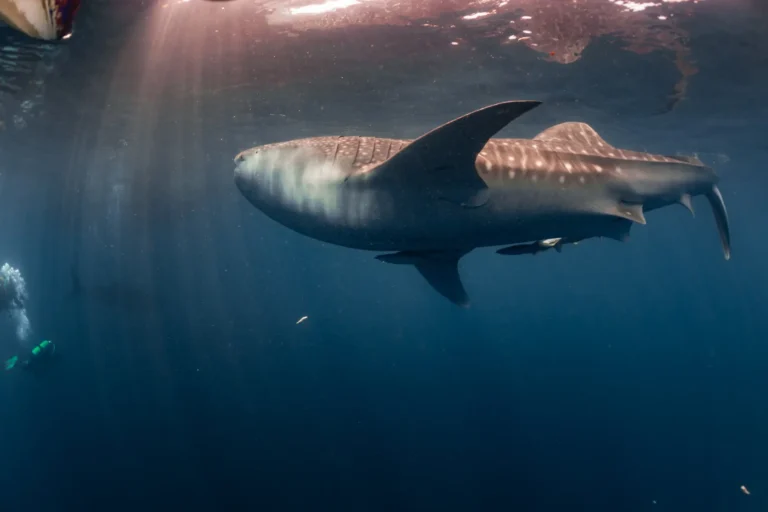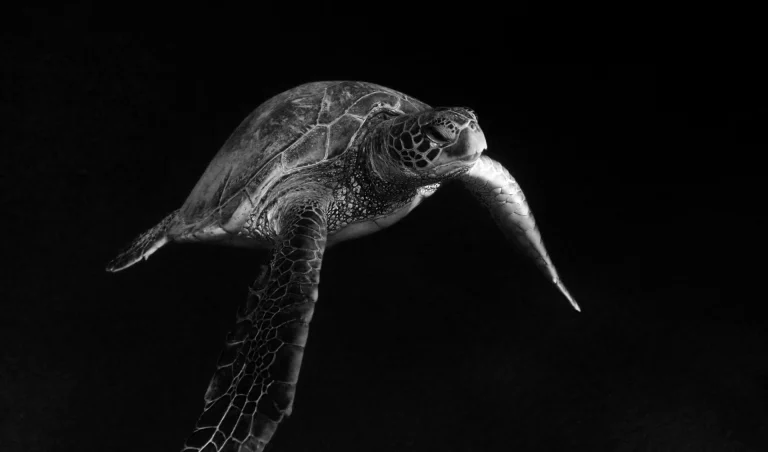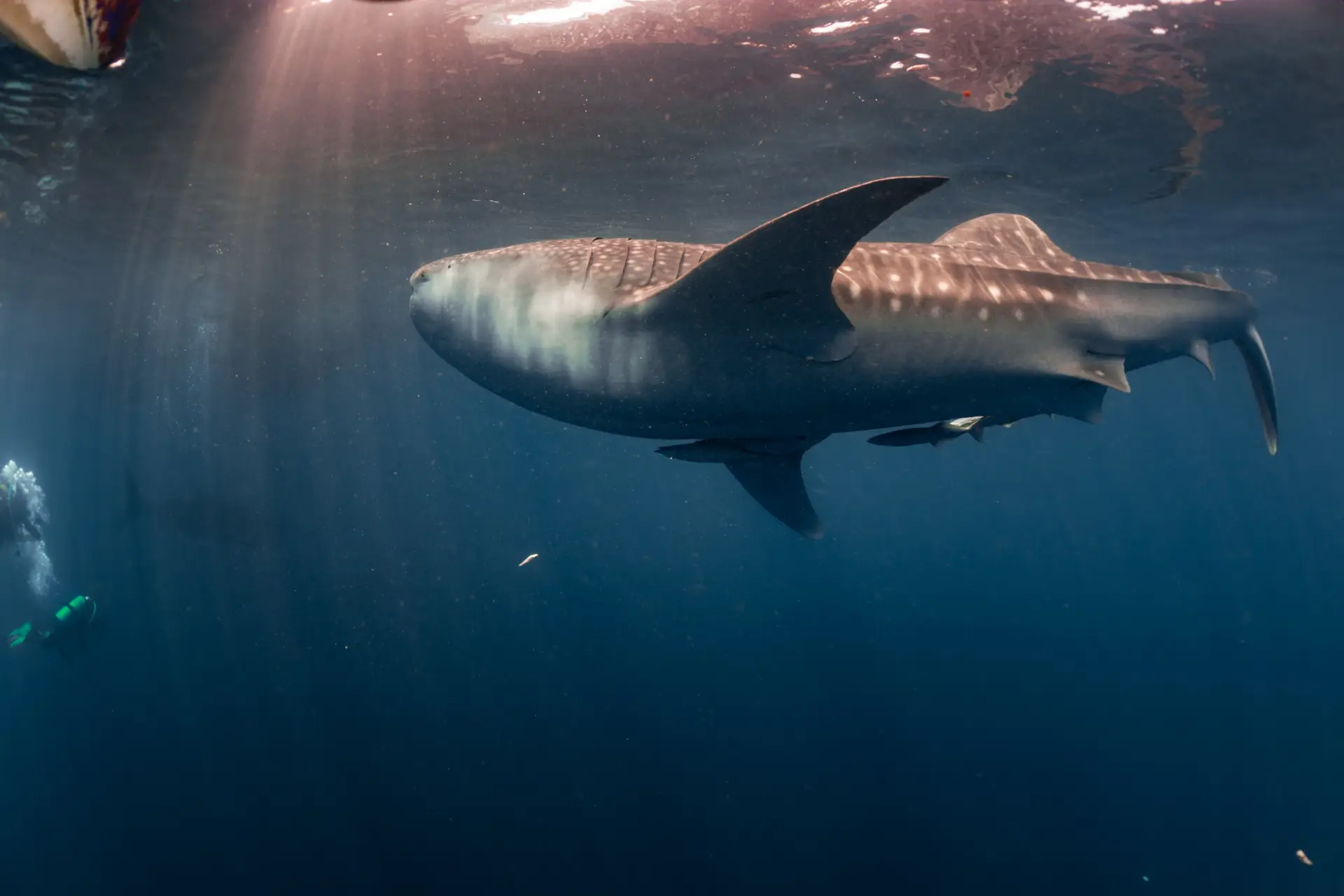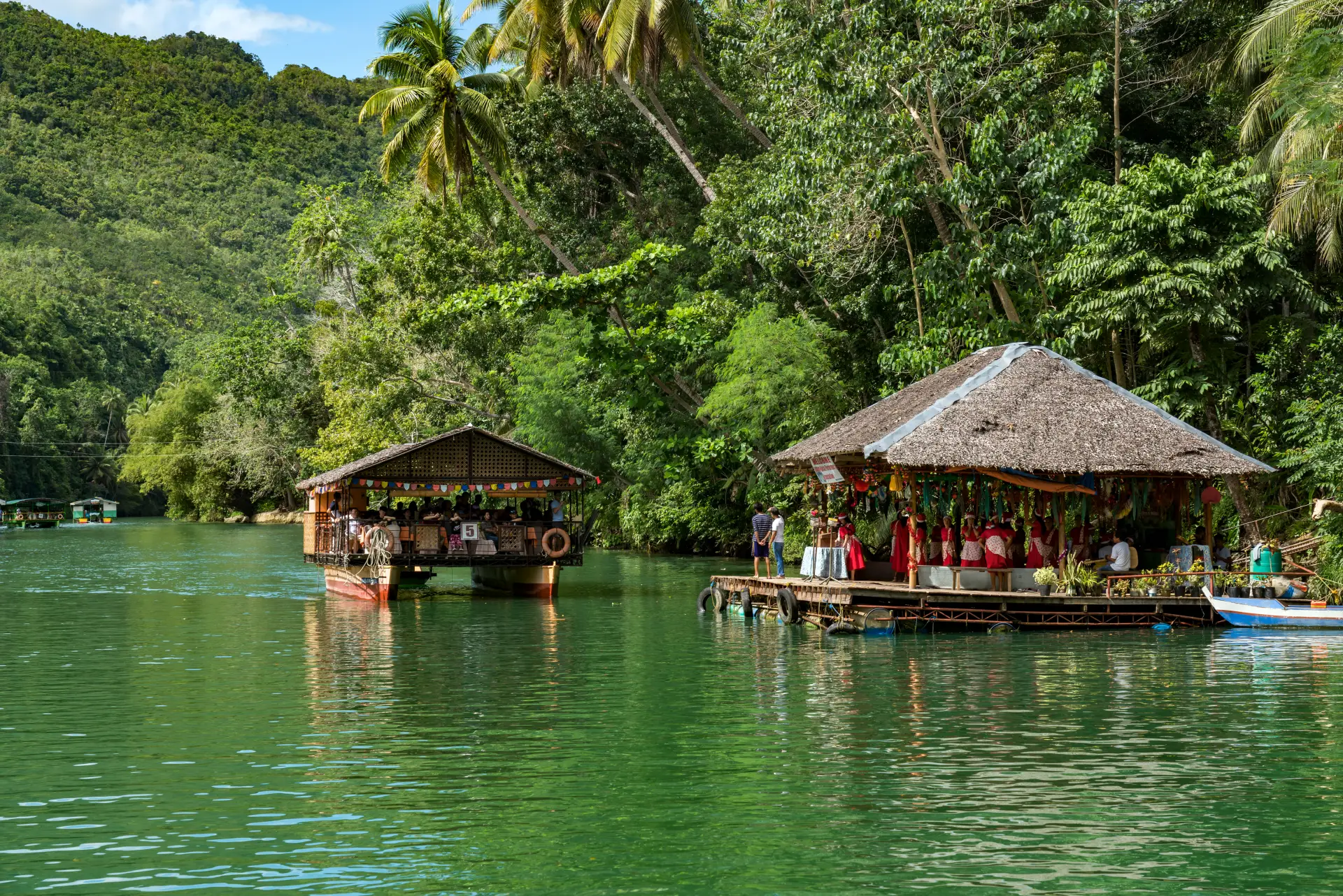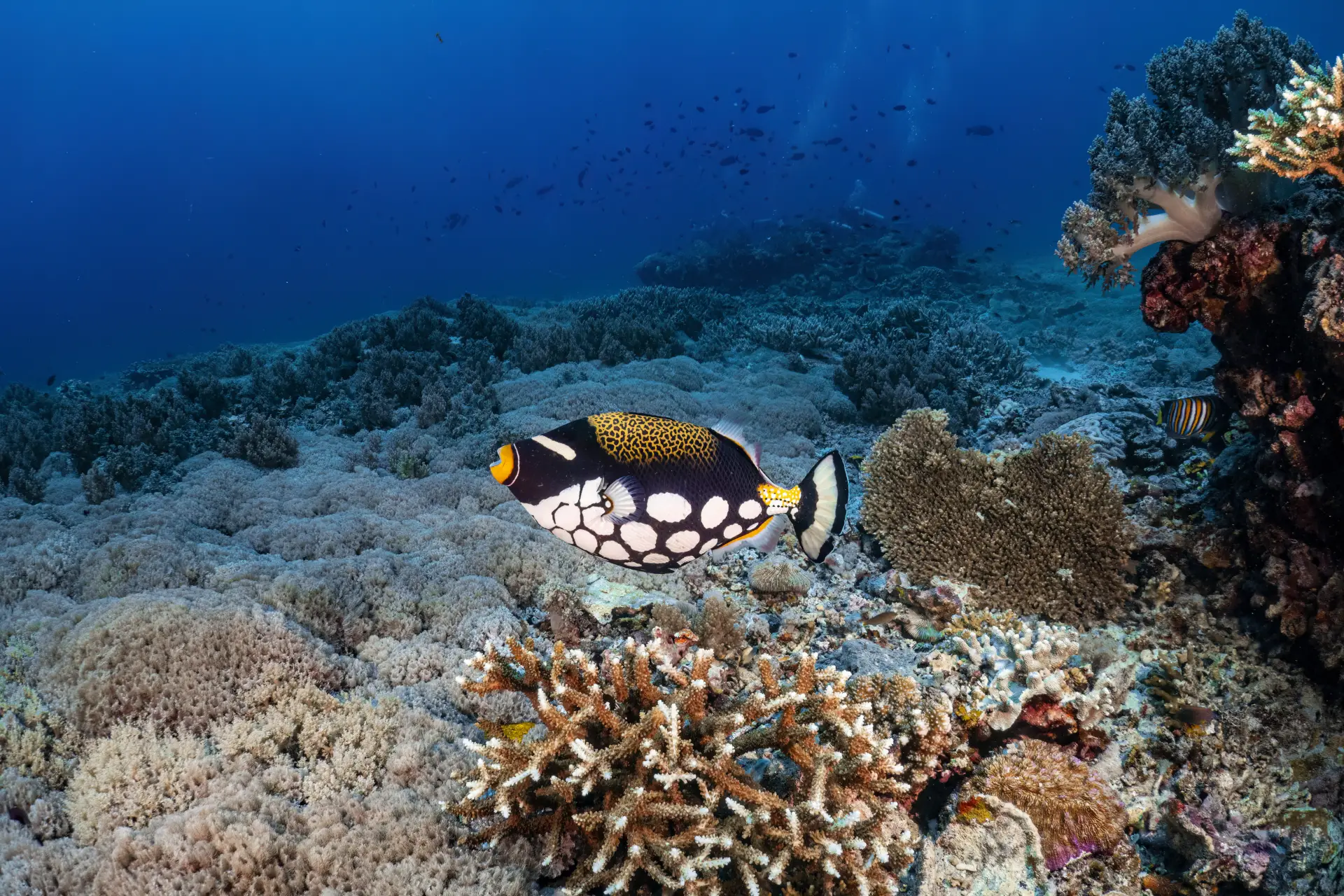Where and How to See Whale Sharks in the Wild—The Right Way
Few marine encounters rival the experience of seeing a whale shark in the wild. These gentle giants, the largest fish in the world, are a bucket-list sighting for many divers. In Bohol, we used to witness their natural migration during the cooler months, but the rise of artificial feeding disrupted their behavior, pulling them away from their natural routes. Now that whale shark feeding has been officially banned in Bohol, there’s renewed hope for divers to once again encounter them naturally in the wild.
At Sierra Madre Divers, we advocate for ethical whale shark tourism, ensuring that these magnificent animals are protected and respected. If you’re hoping to see a whale shark the right way, here’s everything you need to know about where, when, and how to experience them responsibly in Bohol.
Where and When to See Whale Sharks in Bohol
Whale sharks are highly migratory, moving across vast distances in search of food. While they do not stay in one place permanently, Bohol has historically been on their seasonal migration route, particularly from November to March when water temperatures drop, and plankton levels rise.
Best Places to Spot Whale Sharks in Bohol
- Pamilacan Island – Located off the coast of Bohol, Pamilacan has been a known hotspot for pelagic species, including whale sharks. Divers and snorkelers used to see them cruising in the deeper waters around the island.
- Balicasag Island – While Balicasag is famous for its walls and turtles, lucky divers have also encountered whale sharks passing through during peak migration months.
- Open Ocean Drift Dives – Some operators run open-water drift dives in deeper areas where whale sharks have historically been sighted. These encounters are purely luck-based but offer an authentic, natural sighting experience.
Seeing whale sharks naturally means there are no guarantees—which is what makes it so special when it does happen. The unpredictability of these encounters is part of the thrill of diving in an ethical and sustainable way.
How Divers Should Behave Around Whale Sharks
Once you’re lucky enough to encounter a whale shark, it’s essential to know how to interact with them responsibly. Here are the golden rules for ethical whale shark encounters:
1. No Touching
Whale sharks have a protective mucous layer on their skin that helps guard against infections. Touching them can remove this layer, exposing them to potential harm.
2. No Chasing or Blocking Their Path
Whale sharks are gentle filter feeders, and sudden movements or aggressive approaches can startle them. Always approach slowly and calmly, keeping a respectful distance of at least 3-4 meters.
3. No Flash Photography
Bright flashes can distress marine life, including whale sharks. Always disable your camera’s flash and avoid using strobes that might alter their natural behavior.
4. Stay Parallel, Not Above or Below
Position yourself parallel to the whale shark rather than directly above or below. This prevents interference with their movement and ensures a more natural interaction.
5. Limit Group Size and Time
Avoid overwhelming a whale shark with too many divers or snorkelers. A maximum of 5-6 people per shark is ideal. If multiple groups are present, rotate out after a short time to reduce stress on the animal.
By following these guidelines, divers can enjoy a once-in-a-lifetime experience while ensuring that whale sharks remain safe and undisturbed in their natural habitat.
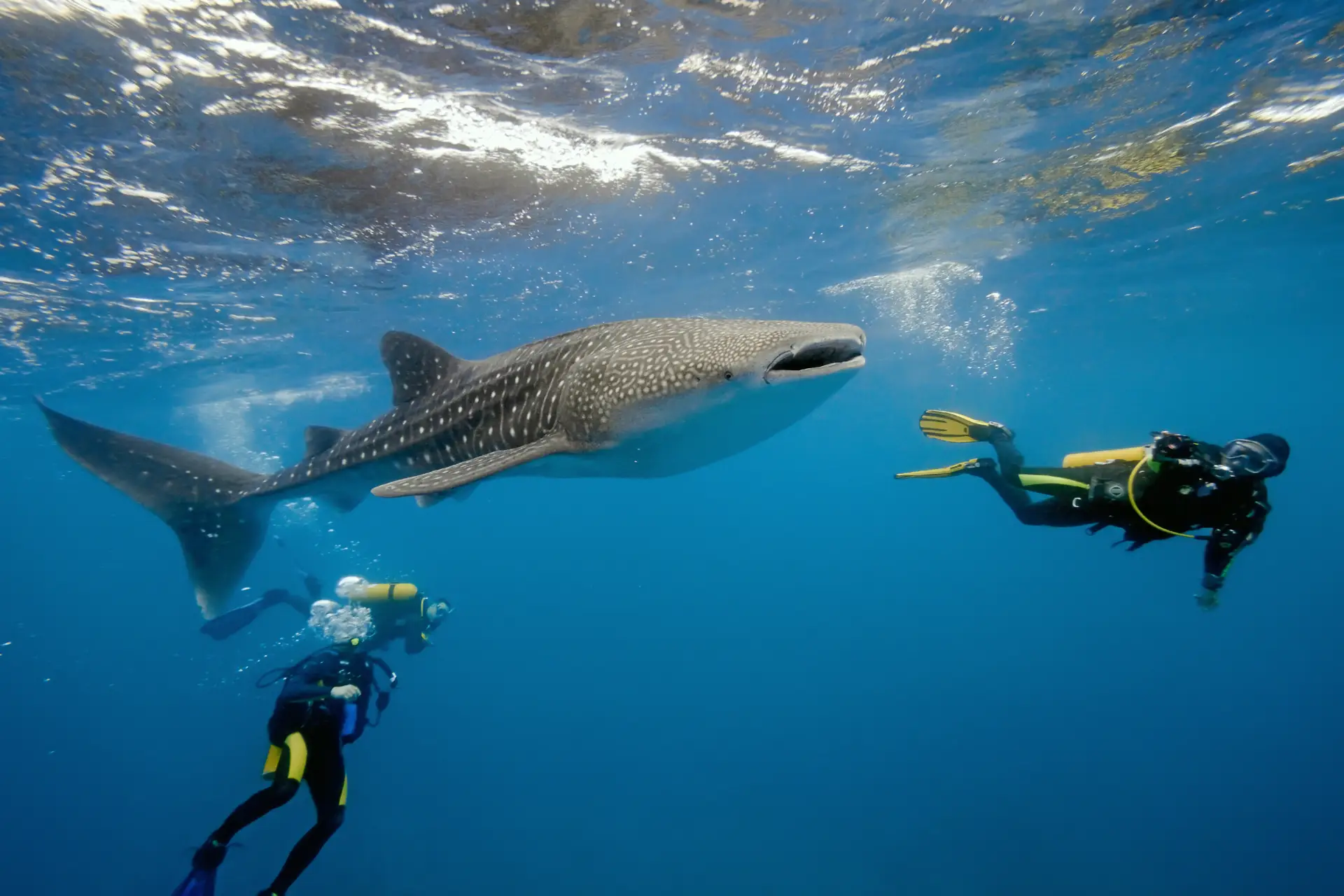
Successful Ethical Whale Shark Tourism Models
Around the world, several destinations have adopted ethical and sustainable approaches to whale shark tourism. These examples highlight how responsible tourism benefits both wildlife and the local economy.
1. Ningaloo Reef, Australia
One of the best whale shark destinations in the world, Ningaloo Reef follows strict no-touch, no-feed policies and enforces regulated viewing distances. Operators use spotter planes to locate whale sharks, ensuring encounters remain natural and non-intrusive.
2. Mafia Island, Tanzania
Tanzania’s Mafia Island has gained recognition for its community-based conservation efforts. Unlike feeding sites, whale sharks in Mafia Island follow their normal behaviors, and locals are directly involved in protecting them. Divers must adhere to strict ethical guidelines to minimize impact.
3. Baja California, Mexico
In Baja California, the Mexican government has implemented a permit system for whale shark tours, ensuring operators adhere to ethical guidelines. Boats must maintain low speeds, and snorkeling groups are limited to prevent overcrowding.
Each of these destinations has successfully balanced eco-tourism and conservation, proving that it is possible to offer unforgettable whale shark encounters while prioritizing their well-being.
Why Natural Encounters Matter
Encounters with wild whale sharks are vastly different from those in controlled, feeding-based settings. Seeing a whale shark naturally means:
- Observing them exhibiting real behavior, such as feeding on plankton, swimming long distances, and engaging in natural interactions.
- Supporting sustainable tourism models that encourage their long-term protection, rather than exploiting them for guaranteed sightings.
- Preserving the integrity of the marine ecosystem, ensuring that whale sharks remain a vital part of the ocean’s biodiversity.
With the ban on feeding in Bohol, there is new hope that these giants will return to their natural migration routes. It may take time, but we believe that by practicing responsible tourism, divers can once again witness whale sharks in their wild, untamed glory in Bohol.
Join the Movement for Ethical Whale Shark Tourism
At Sierra Madre Divers, we are committed to responsible diving and marine conservation. If you’re eager to dive in Bohol and increase your chances of seeing whale sharks the right way, join one of our eco-friendly dive trips. We’ll take you to the best locations for spotting marine life while ensuring that every dive respects the natural balance of the ocean.
Ready to explore Bohol’s waters ethically? Book your dive with Sierra Madre Divers today and be part of the movement to protect our oceans—one responsible encounter at a time.

